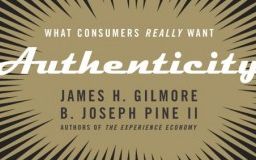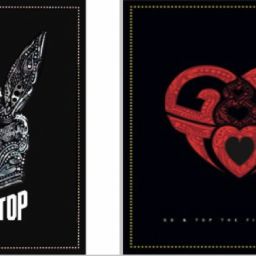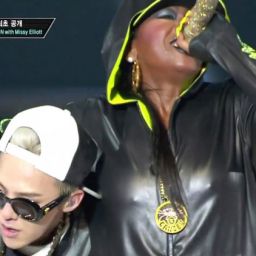Here’s a review of a great documentary that’s not getting nearly enough exposure
“Music is colorblind” is one of those clichéd but usually sincere sentiments that often get bandied about when one wishes to demonstrate the unifying power of song. It’s also a common refrain used when a person of color dares to bring up issues of race in music.
Race in general is never an easy subject to broach – it’s still a topic that some people tend to tiptoe around, spout platitudes about, or just outright ignore. But issues of race within the context of the music industry – from “race records” in the 20’s and 30’s to the suburbanization of contemporary hip-hop – has a particularly thorny and complicated history.
As a black fan of rock music, Houston-based documentary filmmaker Raymond Gayle has a personal interest in telling a different story of race and the music industry. Electric Purgatory: The Fate of The Black Rocker is an impassioned look at black rock musicians, the talented and often overlooked architects of modern rock music, some of whom never quite achieved got their due in the canon of rock criticism or achieved the mainstream success of their white peers.
Comparisons to Afropunk, the popular 2003 documentary which explored the world of black punk rock fans, are inevitable when mentioning Electric Purgatory. Largely bypassing Afropunk’s exploration of personal racial identity, Gayle focuses pointedly on issues of race and racism within the music industry and the often-complicated history of black musicians to maintain a foothold in the world of rock music. The film poses a question best expressed in the film by journalist Charley Braxton, who asks “How did rock music, so rooted in the African-American music and history, become the voice of mainstream white America?”
To answer this question, Gayle sought out interviews with dozens of musicians and journalists, including members of Fishbone, Bad Brains, Living Colour’s Vernon Reid, writer Greg Tate and other members of the pioneering Black Rock Coalition.
Gayle coaxes some very genuine emotions from his subjects, allowing them to talk honestly and quite critically about their experiences within the music industry. “There are … compartments that black musicians can be in [in order to sell.]” says the Roots ?uestlove in a frank and revealing interview. “Scary fantasy, apolitical or pop singer. Artistic merit [from black people] falls on deaf ears.” Fishbone’s Angelo Moore, in particular, uses the film to voice his own frustration about not receiving promotional support from a record label that “didn’t know what to do with us.”
“[I was] very honest with everyone. I came at them like a brother,” Gayle said in a phone interview of his approach to his subjects. “I told them, ‘I’m not here to exploit you; I want to tell your story honestly.’”
Gayle spent much of his time in production chasing down the musicians across the country and flying out to wherever they would be playing in the U.S. at the time. He notes that production was a particularly long process because “it was hard catching up with people.” Many of the bands spend much of their time overseas because the majority of their current fanbase is no longer based in the States. After starting primary production in August 2002, Gayle recorded over 120 hours of interviews, and finished primary production in 2005.“I did what I had to do, [I went] wherever the bands were, A lot of the time they would call me up and tell me where they were playing, and I would fly out, ” said Gayle. “That’s where Expedia and Orbitz comes in handy.” Research for the film took a great deal of time. Gayle said it took a year to locate and obtain archival video footage for the film, including Prince, Rick James and some very memorable footage of Fishbone’s stint as a musical guest on Saturday Night Live in 1991.
Gayle wanted Electric Purgatory specifically to highlight what he called the “Big Three” of contemporary black rock: Living Color, Fishbone and Bad Brains “They resonate with me the same way that Pearl Jam and Nirvana resonate with [others]. Gayle’s sympathies for and solidarity with his subjects show, but lest the film seem like a pity party, Electric Purgatory does spend some of its running time exploring the rich history of black musicians in forming the sound that would be the backbone of contemporary rock music: rock-and-roll pioneer Little Richard, funk guitar virtuoso Eddie Hazel, 70’s funk rock band Mother’s Finest and Jimi Hendryx project Band of Gypsys. Another sidebar that is sure to generate controversy with some, is the discussion of Jimi Hendryx’s venerated status as “super-negro” by white rock audiences who may not otherwise give similar groups a chance.
I just feel like they’ve totally been overlooked. But the film spends equal time looking to the future, featuring new and up-and-coming artists, including funk-rock tinged BlackBushe, thrash metal outfit God Forbid, and the New York-based alternative showcase Sista Factory, who allBlackbushe, lead singer “saw that [rock] was something that I could do.”’
While there are seemingly some missed opportunities in the film to further explorethe individual catalogues of many of these overlooked musicians, a 90-minute documentary is clearly not long enough to do the subject justice. “There are so many bands, so much information, [to cover the whole story] would be on the level of Roots, or the Ken Burns’ Jazz.”
Check out the Electric Purgatory website for a timeline of Black Rock Music










It’s available for $5.99 on iTunes. I’m about that.